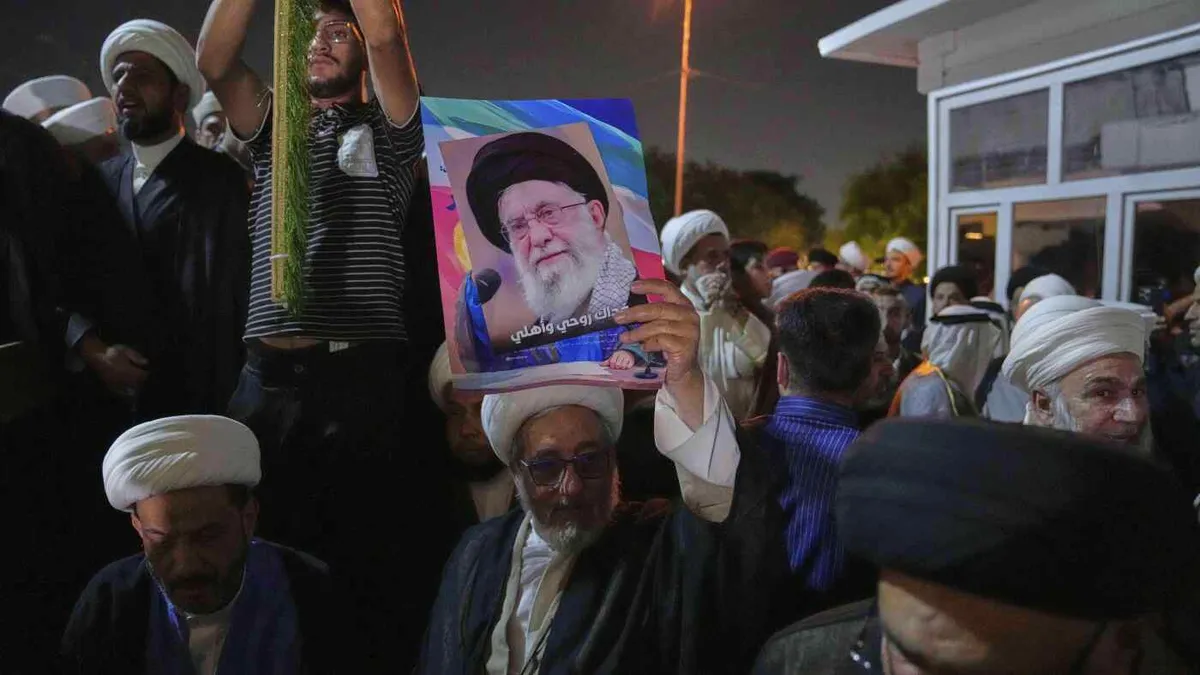
In a pivotal development, foreign ministers from the United Kingdom, France, and Germany are set to engage in crucial diplomatic discussions with their Iranian counterpart in Geneva this Friday. This meeting signifies the most substantial diplomatic talks between Tehran and Western governments following the recent surprise offensive by Israel against Iran, which commenced just a week ago. These talks aim to revive the European trio known as the E3, which previously led negotiations with Iran in the early 2000s and played a vital role in brokering the landmark 2015 nuclear deal during former President Barack Obama's administration.
British Foreign Secretary David Lammy expressed grave concerns regarding the current situation after his Thursday meeting with U.S. Secretary of State Marco Rubio and President Trump's special Middle East envoy, Steve Witkoff. Lammy described the circumstances as "perilous," emphasizing the narrow window of opportunity in the coming two weeks to reach a diplomatic resolution. His comments aligned with President Trump's recent announcement about making a decision on potential U.S. military action against Iran by early July.
In response to the unfolding situation, Iranian Foreign Minister Abbas Araghchi articulated Iran's resistance to negotiations while facing ongoing aggression. Speaking on state television, Araghchi stated, "We do not want to negotiate with anyone while the Zionist regime's aggression continues." He accused the U.S. of complicity in the Israeli strikes, referencing social media posts from Trump suggesting U.S. involvement in controlling Iran's airspace. Araghchi further emphasized that the demand for an end to hostilities has already begun, highlighting the resilience of the Iranian people.
French Foreign Minister Jean-Noël Barrot defended his country's neutral position during a national television appearance, asserting that France adheres to international law and has not engaged in any preventive warfare. Notably, he mentioned that approximately 1,000 French nationals are still in Iran. Meanwhile, Germany's Foreign Minister Johann Wadephul indicated that Berlin remains open to further discussions with Tehran, provided there is a genuine willingness from Iran to offer assurances regarding its nuclear and missile programs. Wadephul stressed that such assurances would require Iran to cease enriching nuclear material that could lead to weaponization and to reduce its missile capabilities.
The conflict has intensified, with Israel and Iran exchanging strikes as recently as overnight into Friday. The Israeli military reported targeting numerous Iranian military installations around Tehran and western Iran. In Israel, at least five individuals sustained injuries when an Iranian missile struck a residential building in the southern city of Beersheba. This incident followed an earlier missile attack on the Soroka Medical Center, the largest hospital in southern Israel, resulting in significant casualties. According to the Israeli Prime Minister's office, at least 24 individuals have lost their lives due to Iranian missile and drone strikes, with hundreds more injured since the onset of the war. In contrast, Iran's Health Ministry reported that Israel's strikes have resulted in over 200 fatalities, while the Human Rights Activists News Agency claimed that 657 people have died and more than 2,000 have been injured in Iran according to non-governmental sources.
As these diplomatic talks unfold, the international community watches closely, hoping for a resolution that can alleviate the escalating tensions in the region.